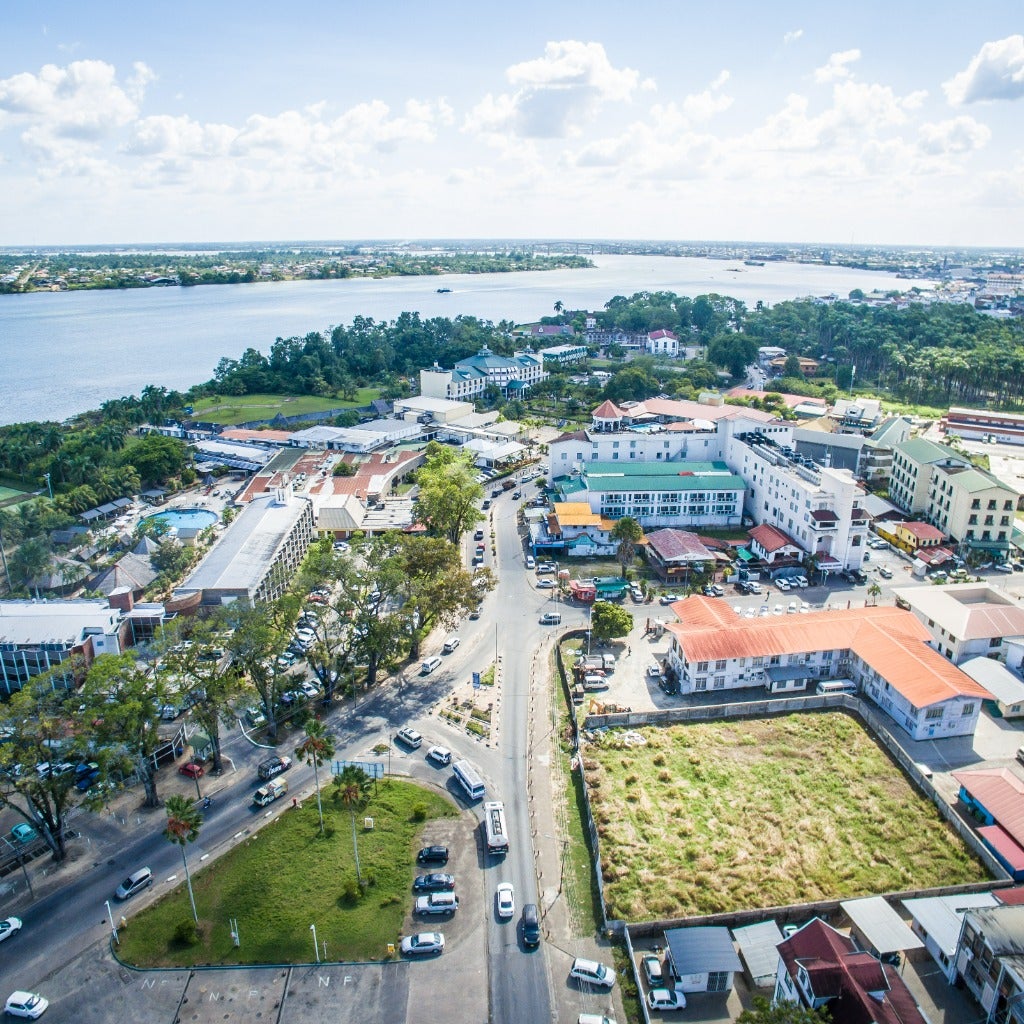An abundance of natural resources, huge potential for tourism, and a government committed to macroeconomic stability are just a few of Suriname’s many strengths. Now at a pivotal moment in its development, harnessing these strengths in a sustainable way could help secure a better future for the people of this South American nation. As Suriname’s leading multilateral partner, the IDB Group is already supporting this economic transformation and our new Country Strategy is well-positioned to support Suriname build on its strengths to achieve sustainable growth and development.
Even before the COVID-19 pandemic, Suriname had not yet recovered from the 2015 recession, which was caused by a sharp decline in the price of its chief export commodities (gold and oil) and the cessation of alumina production. As a result, Suriname is confronting the ongoing pandemic with inadequate resources, large deficits, low growth, high debt levels, and low international reserves.
The 2021-2025 Country Strategy with Suriname sets the framework for the Bank’s support. It reaffirms the IDB’s support to the Government of Suriname and its people through these uncertain and challenging times of change and reform.
Suriname has several strengths that if harnessed sustainably could help achieve prosperity for its people. Suriname is relatively safe with low crime levels, it has rich cultural and linguistic diversity, gastronomy, forestry, potential for niche agriculture, and livestock production. However, success rests on the country’s ability to stabilize the economy in the short term, strengthen human capital, invest in resilient and productive infrastructure, and strengthen governance and institutions.
The 2021-2025 Country Strategy is founded on an evidence-based diagnostic of the challenges facing the country, referred to as Suriname’s Development Challenges. Moreover, the strategy benefited from extensive dialogue with country authorities, civil society organizations, private sector, academia, and international development partners in Suriname. As a result, the Country Strategy, which builds on the previous one, proposes three strategic areas of engagement.
(i) restoring macroeconomic sustainability,
(ii) promoting private sector competitiveness, and
(iii) improving basic services and social protection.
Cross-cutting issues related to gender equality, diversity, and inclusion, climate change resilience, data production and access, and institutional capacity and the rule of law will be mainstreamed into each of these areas.
The short-term aim is to support economic stabilization by improving macro-fiscal performance through a combination of expenditure, revenue, and institutional strengthening reforms. This would include strengthening operational and spending efficiency across government, strengthening revenue and tax collection by improving tax administration and reducing distortions, and strengthening public financial management systems and related economic institutions. Strengthening the country’s social protection system will also take priority in the short term given the adverse impact of austerity measures and COVID-19 on living conditions.
The medium to longer-term reforms in the country strategy focuses on private sector development, digitalization, infrastructure and transportation connectivity, education and labor market alignment, health, public utilities, and financial inclusion.
The IDBG will provide technical and financial resources geared towards knowledge generation for developing consensus around evidence-based policies.
Learn more about the IDBG’s partnership with Suriname and the 2021-2025 country strategy here.


Leave a Reply